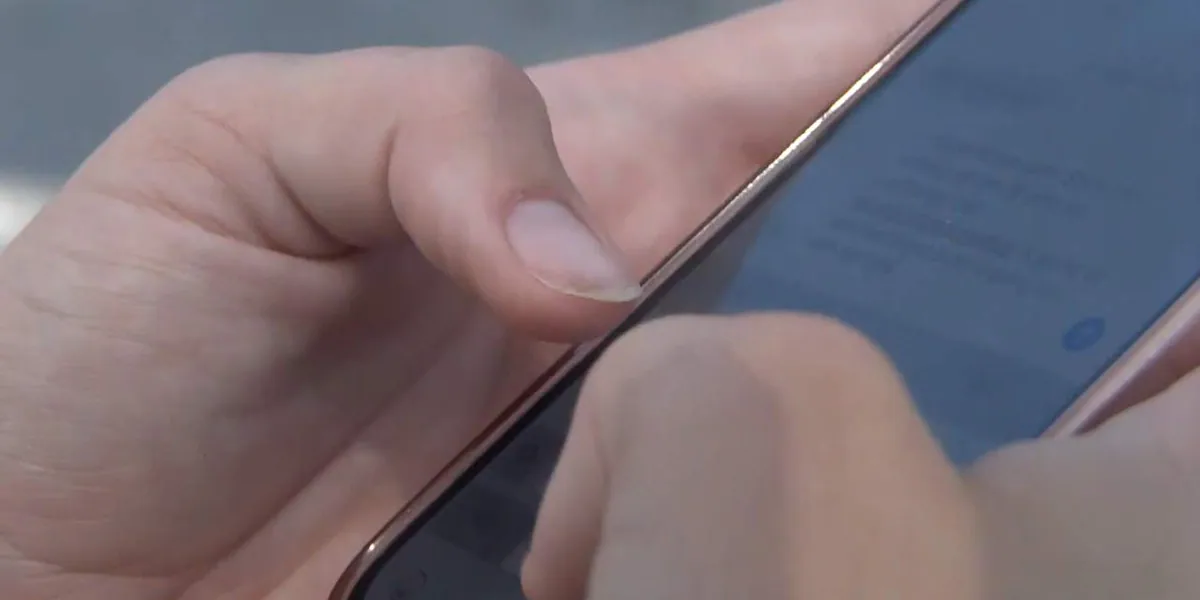
CHARLESTON, S.C. (WCSC) – As the second semester of the state cellphone ban in South Carolina schools is underway, districts in the Tri-County report thousands of violations, but positive engagement from students.
As of January, South Carolina students were no longer allowed to access devices, including cellphones, during the school day unless they had permission from their district superintendent. In turn, school districts had to enact their own policies.
When this first took off, Charleston County Schools parent Joy Brown and Berkeley County Schools parent Adrienne Maysey both said they felt nervous and concerned.
“Because you see things happening across the country,” Brown said. “School shootings, even fights.”
“I’ve always liked my kids to have a direct pipeline to me in the event of an emergency,” Maysey said.
But after just a few weeks of seeing it in action, their feelings quickly changed.
“One-hundred percent ease,” Brown said. “I mean, they’ve got really great processes in place.”
“I’ve been pleasantly surprised by the change since it went into effect,” Maysey said.
In just the first semester of this policy, last spring, Charleston County Schools reported nearly 5,000 incidents of kids using cellphones during the school day.
The Berkeley County School District handed out about 1,100 referrals. The discipline ranged from warnings for nearly 700 incidents to two falling under the category of in-school suspension.
Dorchester District 2 had about 2,300 offenses, leading to 26 phones being confiscated.
Dorchester District 4 reported 330 violations, with 20 incidents leading to in-school suspension.
“It doesn’t surprise me because, especially for the first semester of implementation, some pushback. I mean, kids are going to test their boundaries and limits,” Brown said. “I would be really, really interested in what that’s going to look like for the comparable semester.”
All four districts say the policies have shown encouraging results, with Dorchester District 4 reporting a smooth transition. Charleston County Schools reports an increased engagement in the classroom, while Dorchester District 2 says students have better focus, less opportunities for academic dishonesty and now have more streamlined classroom management.
Berkeley County Schools says they do not anticipate any changes to the policy or increases in consequences for violations moving forward.
“I think it’s up to the students to follow what they’re being told,” Maysey said. “And I feel like transparency is always number one. If you’re trying to sneak a device, that is telling me that you’re doing it for a reason that’s probably not a good reason.”
“Students were using their phones to start fights. Bully in school and taking pictures of other kids,” Brown said. “So, I think those declining is worth the kids not having a phone on them for a few hours a day.”
These cellphone policies are continuing across the state for the foreseeable future.
Districts release statements on policy’s effectiveness, future plans
The four Tri-County school districts provided the following comments about their cellphone policies and what their future plans for the policies are.
The Charleston County School District provided the following statement:
The Charleston County School District is committed to working closely with students and families as we adapt to the state’s new cellphone law. We recognize that the referral numbers from the first full semester of implementation of the policy, which impacts tens of thousands of students in the second-largest school district in the state, will draw attention from the community. However, we have seen encouraging results, including increased engagement in the classroom, both between teachers and students and among peers themselves. We believe these positive shifts will continue to strengthen learning environments, and we are hopeful that, over time, referrals will decrease as understanding and consistency with the policy grow.
The Berkeley County School District provided the following statement:
The Free to Focus S.C. initiative continues to show positive results, with schools noting higher levels of student focus and academic engagement compared to previous semesters. At this time, BCSD does not anticipate any changes to the policy or increases in consequences for violations. We will continue monitoring its effectiveness to ensure it supports student success.
Dorchester District 2 provided the following statement:
Dorchester School District Two is committed to fostering safe, supportive, and high-quality learning environments for all students. As part of this commitment, the district updated its Personal Electronic Device Policy (AR JICJ-R) effective Jan. 1, 2025, to align with current South Carolina state regulations.
Additionally, the district’s new Discipline Matrix is now in effect for the 2025–2026 school year, reinforcing our dedication to fair, consistent, and student-centered discipline practices that aim to:
Promote fairness across all schools by ensuring that every student is treated with consistency and respect.
Clearly define behaviors, levels of misconduct, and corresponding consequences to help students, families, and staff understand expectations.
Support student growth and accountability through thoughtful consequences that encourage reflection and positive change.
Align with the district’s core values and educational goals, creating a unified and effective approach to student discipline.
District and school leaders continuously monitor discipline data to identify trends, provide individualized support, and make adjustments that keep students at the center of our work.
Bell to Bell Benefits:
Improved focus and fewer distractions, helping students stay engaged and actively participating in classroom learning.
Reduced opportunities for academic dishonesty, supporting a culture of integrity.
Streamlined classroom management, giving teachers and administrators more time to build relationships, observe instruction, and support student success.
Dorchester District 4 provided the following statement:
Since the implementation of this policy last year, as well as during the current school year, our schools have experienced a smooth transition with only a small number of minor incidents involving student use of personal devices during the school day. Because of this, the district does not have a significant volume of confiscations or referrals to report under this policy.



